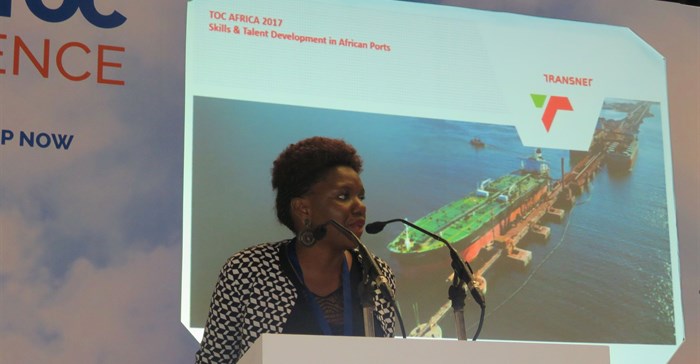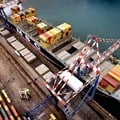Addressing the Tech TOC session at the African Terminal Operators' Conference (TOC Africa) in Durban, Lwandile Mabuza, senior operations manager for Transnet National Ports Authority's (TNPA) Port of Durban's Point and Leisure Precinct, said African ports needed African solutions that respond to the rapid technology changes in the maritime industry. These solutions should embrace technology while enhancing the skills and talent development within the port sector.
“Whilst we have a dire need for job creation on the continent, we also want to be efficient, so I believe that it is beneficial to incorporate semi-automation that will enhance productivity, develop new skills and job opportunities that will attract and retain the ports’ workforce.” she said.
Globally, shipping lines, ports, and terminals are implementing automation as a way to minimise costs and increase the productivity, safety and sustainability of their operations. While TNPA has embraced this wave of the fourth industrial revolution, through its Smart Peoples Port, it is also using high tech training media to develop a high-performance workforce rather than eliminate human work.
The demands of clients have also changed, said Mabuza. “Shippers now need a one-stop shop offering a single point of entry and competition has moved from countries’ comparative advantage to competitive global supply chains. This is driving African ports to diversify in order to facilitate nearshoring and value-added logistics by creating more facilities for postponed manufacturing closer to the port,” she said.
"Impacting the workforce of the future"
These shifts are all impacting on the workforce of the future.
Mabuza said that despite a growing number of millennials in the workplace, African ports still faced challenges in recruitment and selection. These include an ageing, low-tech workforce, the high experiential requirement for white collar jobs, limited upward mobility, physically demanding jobs, inflexible work schedules, repetitive work and long hours.
Recruitment strategies for ports therefore needed to incorporate a healthier mix of older and younger people and should leverage technology to improve the working conditions of port workers. To retain the best people, ports and logistics companies should have a talent programme and should foster corporate entrepreneurship, while embracing artificial intelligence, augmented reality and gamification to enable quicker decision making and creative supply chain solutions.
Gilbert Saggia 20 Nov 2017 Mabuza said South African ports were approaching technology as more of a friend than a foe. TNPA’s Smart People’s Port Programme, for example, is an integrated solution that seeks to create a single view of port connected logistics, operations, infrastructure, assets, traffic and trade flows using the latest digital technology to complement human activity. The Transnet Maritime School of Excellence also remains committed to training for a high-performance workforce.
"What we know is that more than education and experience, ports require creative, passionate supply chain thinkers and entrepreneurial talent to navigate the ever changing and uncertain future," said Mabuza.
“Your agility gives you competitiveness. African ports must invest in training and development and should look at how we leverage technology to bolster our competitive edge,” she added.






































